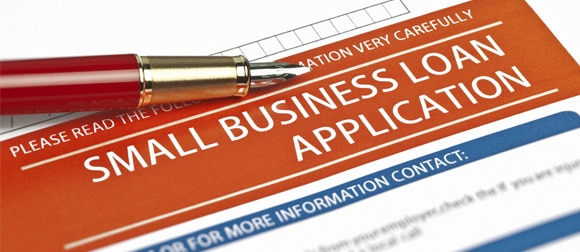Both consumer and business credit reports and scores are extremely important, but they do have significant differences. When we speak to business owners we often hear them brush-off business credit, as if it doesn’t carry as much importance as their personal. There is a common misconception that since many business owners can rely on their personal scores and reports, that they should. There are significant advantages to leveraging both business and personal scores, but to do so people need to understand the variations in each reporting system.
Business Credit
- Defined as a score, index, and/or data used to determine whether a specific incorporated organization will qualify for credit. This could be any kind of credit or financial commitment – business loans, factoring, vendor account payment terms (new and existing), credit cards, lines of credit, investor relationships, and/or partner relationships.
- Three major bureaus – Dun & Bradstreet, Experian, and Equifax, plus a handful of other bureaus that are smaller but still commonly used.
- Building scores – to have business credit, companies must work with vendors/creditors who report to the business credit bureaus. A surprising number of vendors do not report payment experiences at all and not many business owners know enough about business credit or its significance to research whether their vendor reports. It’s an all too common surprise that comes at the worse time, when owners apply for a loan/line and learn that few of their accounts have been reporting.
- Similarly, to personal credit, all the business bureaus report information independently and do not share it. So, data (positive or negative) could be reporting through one bureau but not the rest. This is one reason why it’s so important to review every report.
- Most of the bureaus do not provide the name of each trade account on reports. Some will mark the accounts by industry and that’s it.
- Scores and indexes are tabulated differently, using a separate propriety algorithm than what is used for personal credit. FICO credit scores range from 300 to 850 – with business credit there are numerous scores with different ranges. For instance, some Dun & Bradstreet scores range from 0 to 100 or have an alphabetic representation.
- Business credit reports are view-able by anyone who purchases them. They do not need permission and the owner does not need to know about the inquiry.
- Some business credit reports reveal the revenue or financial information on the company. Businesses can opt out of having it reported though, it’s only when the information is public or if it’s reported.
Ignoring business credit can end up hurting profitability. It’s important that business credit is kept at its best, since anyone can view the reports before doing business, poor scores can have an impact on potential business relationships. Having strong business credit means that you’re reflecting a strong and financially reliable company that interested parties will want to work with.
Consumer Credit
- Consumer credit is used to determine whether an individual is eligible for a loan, credit card, or other financing. Using historical payment data and other factors, a credit score is developed using a proprietary algorithm. The most popular scores used in lending are not owned by the credit bureaus, but a separate company called FICO.
- Three major personal credit bureaus – TransUnion, Equifax, and Experian. Yes, Equifax and Experian report both consumer and commercial information, but it’s reported separately and differently.
- The bureaus do not share reporting information, an account could be reporting on Trans Union and not the other two, or vice-versa.
- Building personal credit still takes strategy, but it’s more widely spoken about and more creditors report consumer accounts.
- To pull personal credit reports a third party must have your permission. It’s illegal to do a hard pull on someone’s credit without their knowledge and permission.
- Each creditors name will be clearly shown on personal reports.
- Consumer scores do not reflect the income or financial status of an individual.
Business owners should take the appropriate steps to legally separate themselves from the business by incorporating or making the business a legal entity. Once that step is completed they can focus on building business credit and keeping their own credit/finances apart from that of the business, this can help limit the amount of personal liability you’ll have on company debts.





